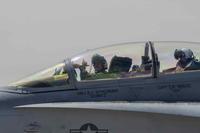
Russia is well known for its military mentality. Remember the cold war? It has taken nearly a decade for the world to realize the true threat of cyber war. Today, the world is dependent on computers and networks much more than we were eight years ago when we experienced the NATO-Serbia cyber war. Russia opened the eyes of the world to the looming threat of cyber warfare after the Estonia incident. Just last week Russia's State Sponsored cyber forces opened up a new front in cyber war.
Reports indicate that Russian Cyber Forces unleashed a large scale cyber attack on Radio Free Europe. In addition, there is some evidence of the use of BotNets in politically motivated distributed denial-of-service (DDoS) attacks. With all this demonstrated ability, should we be concerned? What are Russia's true cyber warfare ambitions? Russia's Cyber Warfare Doctrine is designed to be a force multiplier along with more traditionary military actions including WMD attacks. A force multiplier is a military term that describes a weapon or tactic that, when added to and employed along with other combat forces, significantly increases the combat potential of that force.
Like all offensive cyber strategies it includes the capability to disruption the information infrastructure of their enemies. This doctrine includes strategies that would disrupt financial markets, military and civilian communications capabilities as well as other parts of the enemy's critical infrastructure prior to the initiation of traditional military operations. They also address weaken the economy of their adversary to further decrease their ability to respond to the combined threat. Offensive cyber weapons receive great attention in the Russian Cyber Warfare Doctrine. This coupled with advanced R&D puts them on the leader board in cyber warfare.
Cyber attacks and cyber weapons are strategic arms and in effect are real offensive weapons. Cyber-attacks can harm or even paralyze a country and therefore have equivalent implications as that of physical military attacks. Most cyber attacks leave behind forensic evidence that can be used to assess the capabilities of the attacker. With all the attacks attributed to Russia, there has to be significant intelligence out there about techniques, cyber weapons, and strategies that have been used in these cyber assaults. An interesting point is that NATO's Defensive Treaty drawn up in 1949 does not deal with cyber weapons as the Internet did not yet exist and there were very few computers at the time.
Once again, warfare capabilities have outpaced our legal and political systems. Former Russian President Vladimir Putin has blasted the US for its militaristic approach to foreign policy, saying its actions were "nourishing an arms race." Need some more evidence? In 1998, Russia's defense budget was less than $3 billion. Since that time, the Russian defense budget has been soaring, funded by substantial increases in their petroleum income, the budget jumped 23 percent in 2007 to $32.4 billion.
An interesting point to keep in mind is that Moscow does the arms business with over 70 countries, including China, Iran, and Venezuela, and in 2006 exported $6 billion worth of arms. Russian intelligence services have a history of employing hackers against the United States. In 1985 the KGB hired Markus Hess, an East German hacker, to attack U.S. defense agencies in the infamous case of the Cuckoo's Egg.
The following is an estimate of Russia's cyber capabilities.
Russia's 5th-Dimension Cyber Army:
Military Budget: $40 Billion USD
Global Rating in Cyber Capabilities: Tied at Number 4
Cyber Warfare Budget: $127 Million USD Offensive Cyber Capabilities: 4.1 (1 = Low, 3 = Moderate and 5 = Significant)
Cyber Weapons Arsenal in Order of Threat:
- Large, advanced BotNet for DDoS and espionage
- Electromagnetic pulse weapons (non-nuclear)
- Compromised counterfeit computer software
- Advanced dynamic exploitation capabilities
- Wireless data communications jammers
- Cyber Logic Bombs Computer viruses and worms
- Cyber data collection exploits Computer and networks reconnaissance tools
- Embedded Trojan time bombs (suspected)
Cyber Weapons Capabilities Rating: Advanced
Cyber force Size: 7,300 +
Reserves and Militia: None
Broadband Connections: 23.8 Million +
Close ties with Russian Business Network (RBN), who is thought to own and operate the second largest BotNet in the world. Intelligence suggests there are organized groups of hackers tied to the Federal Security Bureau (FSB).
The FSB is the internal counter intelligence agency of the Russian Federation and successor to the Soviet KGB. Russia is often overlooked as a significant player in the global software industry. Russia produces 200,000 scientific and technology graduates each year. This is as many as India, which has five times the population. This is hard to believe since their software industry can be traced back to the 1950s.
A study by the World Bank stated that more than one million people are involved in software research and development. Russia has the potential to become one of the largest IT markets in Europe. The Russian hacker attack on Estonia in 2007 rang the alarm bell. Nations around the world can no longer ignore the advanced threat that Russia's cyber warfare capabilities have today and the ones they aspire to have in the near future.
From this information, one can only conclude that Russia has advanced capabilities and the intent and technological capabilities necessary to carry out a cyber attack anywhere in the world at any time.








